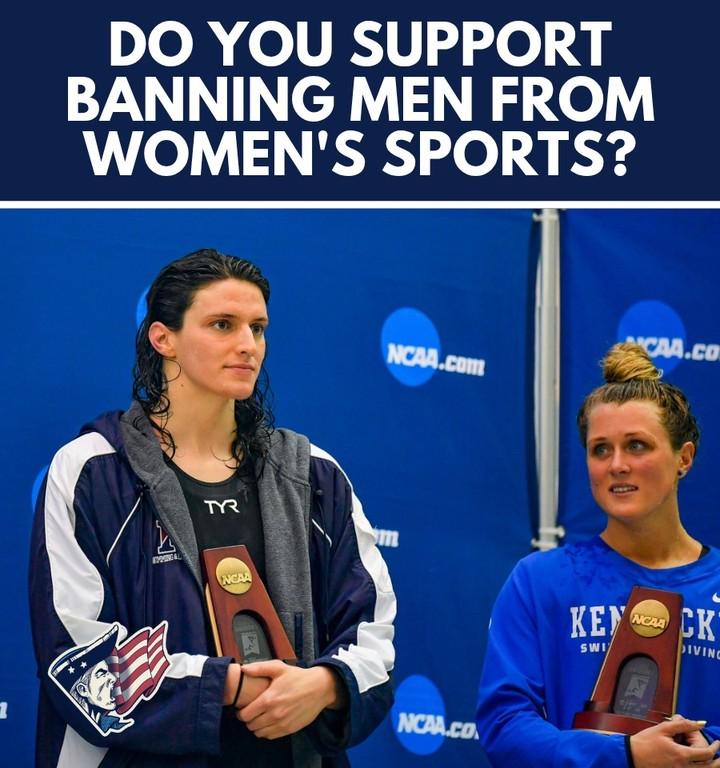In the fiery arena of modern sports, a controversy has erupted that’s tearing through social media, igniting heated debates, and leaving no one indifferent. Should men—specifically transgender women who were assigned male at birth—be banned from competing in women’s sports? This question isn’t just a policy debate; it’s a cultural earthquake, shaking the foundations of fairness, identity, and equality. With viral threads blowing up on platforms like Threads, one shocking claim—that transgender athletes are “obliterating” women’s records with “unfair biological advantages”—has sparked a global firestorm. Let’s dive into the heart of this explosive issue, where science, emotion, and politics collide.

The argument for banning transgender women from women’s sports hinges on biology. Proponents claim that male-born athletes, even after hormone therapy, retain physical advantages—higher muscle mass, bone density, and testosterone levels—that give them an edge over biological females. A 2020 study in Sports Medicine found that while testosterone suppression reduces muscle mass in transgender women, it doesn’t fully eliminate strength advantages after years of male puberty. Critics of transgender inclusion point to high-profile cases like Lia Thomas, the transgender swimmer who dominated women’s college swimming in 2022, breaking records and fueling outrage among competitors and fans. They argue that allowing transgender women to compete undermines the integrity of women’s sports, robbing female athletes of opportunities and fairness. “It’s not about hate; it’s about biology,” one viral Threads post declared, racking up millions of views and thousands of heated replies.
On the other side, advocates for transgender inclusion argue that banning transgender women is discriminatory and rooted in fear, not science. They emphasize that hormone therapy significantly reduces physical advantages, leveling the playing field. The International Olympic Committee’s 2021 guidelines allow transgender women to compete if their testosterone levels remain below a certain threshold for at least 12 months. Supporters argue that excluding transgender athletes violates their human rights and ignores their gender identity. “Trans women are women, period,” a prominent activist tweeted, sparking a wave of supportive emojis and counterarguments. They also highlight the mental and social toll of exclusion, noting that sports should be about inclusion and personal growth, not just competition.
The debate isn’t just academic—it’s personal. Female athletes like Riley Gaines, who competed against Lia Thomas, have become vocal advocates for banning transgender women, claiming they felt “cheated” and “silenced” by governing bodies. Meanwhile, transgender athletes face harassment and death threats, with many saying they just want to compete as their authentic selves. The emotional stakes are sky-high, and social media amplifies every voice. Threads is ablaze with memes, from exaggerated caricatures of “men dominating women’s sports” to heartfelt stories of transgender athletes overcoming adversity. One post, showing a transgender runner winning a women’s race, captioned “Is this fairness?”, went viral with 10 million views, splitting users into furious camps.
The science is murky, too. While studies like the 2020 Sports Medicine paper suggest lingering advantages, others argue that the data is inconclusive, especially for athletes who transition early. Critics of bans also point out that biological variation exists among all athletes—some women naturally have higher testosterone or taller frames, yet no one demands their exclusion. This complexity fuels the fire, as both sides cherry-pick data to suit their narrative. Meanwhile, governing bodies like World Athletics and USA Swimming are caught in the crossfire, issuing policies that satisfy no one. In 2023, World Athletics banned transgender women from elite women’s events, citing “fairness,” while facing accusations of transphobia.

The cultural implications are massive. This debate touches on everything from feminism to trans rights, with each side accusing the other of betrayal. Some feminists argue that protecting women’s sports is a feminist issue, preserving spaces for biological females. Others counter that feminism must include trans women, or it’s not true equality. On Threads, the hashtag #TransSportsBan trends weekly, with users posting everything from scientific articles to inflammatory memes. One user’s claim—“Trans athletes will end women’s sports forever!”—drew 50,000 likes but also thousands of rebuttals, showing how polarized the discourse has become.
What’s undeniable is the passion. Fans, athletes, and activists are pouring their hearts into this fight, and it’s reshaping how we view sports. Will women’s sports evolve to include transgender athletes fully, or will bans become the norm? The answer depends on whether society prioritizes science, fairness, or inclusion—or finds a way to balance all three. For now, the debate rages on, with no end in sight. One thing’s certain: this isn’t just about sports. It’s about who gets to define what it means to be a woman in 2025.






